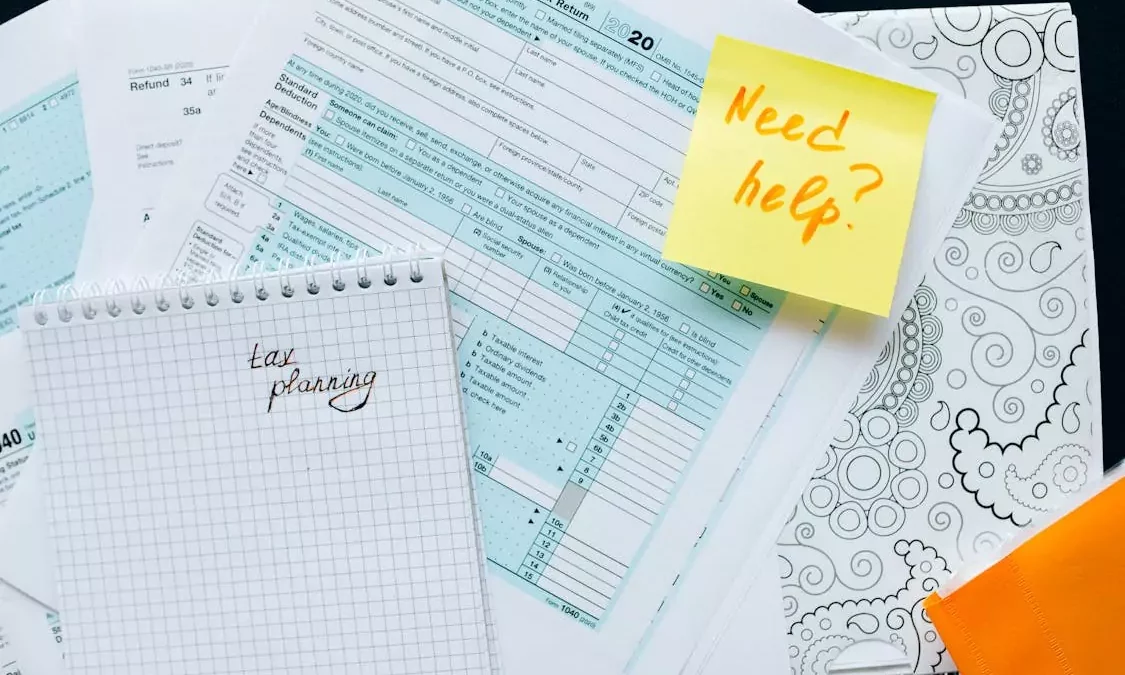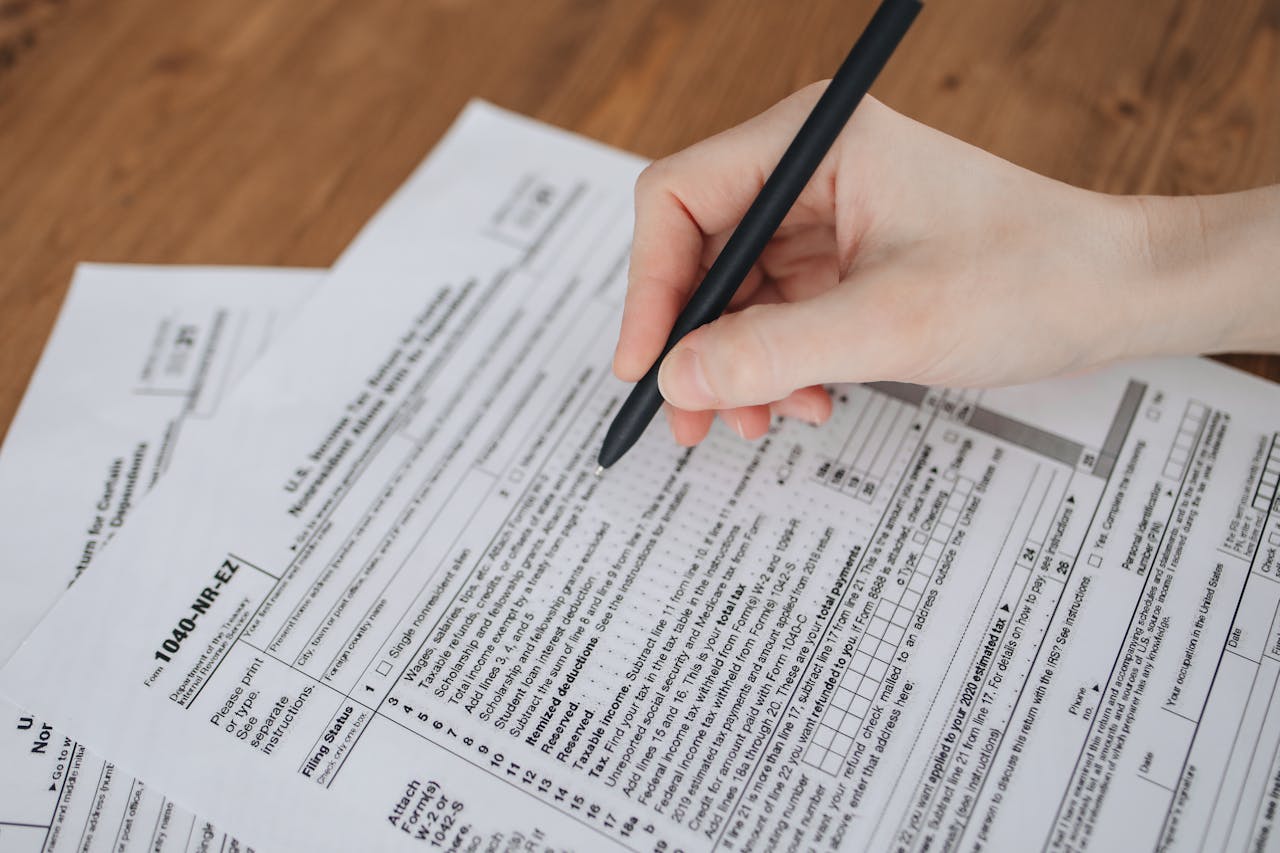What Happens If You Get Audited and Don’t Have Receipts?

What Happens If You Don’t File Taxes on Your Business?
October 26, 2024
Xero vs. NetSuite: Which Accounting Software Is Right for You?
November 8, 2024Getting audited is a stressful scenario that most people hope to avoid, but it’s a reality that can happen to anyone. When the IRS selects a taxpayer for an audit, they’re essentially asking for proof of income, expenses, and deductions to verify the information reported on the tax return.
The supporting documents—often in the form of receipts—are crucial in substantiating these claims. But what if you don’t have these receipts? Perhaps they were lost, accidentally discarded, or never kept in the first place.
Facing an audit without all your receipts may seem like an impossible situation, but there are ways to navigate it.
In this blog, we’ll cover why receipts are so important, what happens if you can’t produce them, and the steps you can take to provide alternative documentation. Additionally, we’ll discuss proactive steps to ensure you’re well-prepared should you ever face an audit in the future.
Why Receipts Are Important for Taxes
Receipts play a foundational role in the tax process, acting as the proof that validates your deductions, expenses, and other claims. According to the IRS, taxpayers are required to keep adequate records of any expenses that they report on their taxes. Receipts are the most straightforward form of proof, as they show what was purchased, when, and for what amount.
Here’s why receipts are critical for your taxes:
Verification of Deductions and Credits
The IRS often scrutinizes deductions, particularly if they’re unusually large for a taxpayer’s income bracket. Receipts help verify that deductions were legitimate expenses and not artificially inflated.
Supporting Proof for Major Purchases
Business expenses, charitable contributions, and large purchases (like a new car for a self-employed driver or home office improvements) are common areas where the IRS requires proof. If you’re claiming a big-ticket deduction, the IRS wants proof that it was indeed a valid business or deductible expense.
Maintaining Compliance
Proper documentation is a core part of tax compliance. Having receipts ensures you’re equipped to respond effectively if your return raises questions during an audit.
Reducing Risk of Penalties
The IRS can issue penalties if it finds that deductions are unsupported. With receipts in hand, you’re reducing your risk of having to pay back taxes, plus potential interest and penalties.
Since the IRS requires most records to be kept for three years (or more in some cases), it’s essential to save receipts for that period. However, even when careful, receipts may sometimes be misplaced or accidentally discarded. Let’s explore how the lack of receipts might impact an audit and the options available to address it.
What Triggers an Audit?
The IRS conducts audits to ensure that taxpayers are accurately reporting income, deductions, and other financial details on their tax returns. Although the likelihood of being audited is generally low, certain scenarios can increase the risk. Understanding what can trigger an audit may help you identify areas where extra documentation and caution are warranted.
When deductions seem disproportionately high relative to a taxpayer’s income, it raises a red flag. For instance, if a taxpayer reports a modest income yet claims substantial business expenses, the IRS may investigate to confirm the legitimacy of those claims.
Moreover, if you are self-employed, keep in mind that you’d be particularly scrutinized for business-related deductions. Home office expenses, travel, meals, and vehicle expenses are areas where the IRS sees frequent overstatements, and these deductions are often heavily questioned.
There’s also the off chance the IRS receives information from other sources that doesn’t match what’s on your return—such as W-2s, 1099s, or banking information. This can trigger an audit. Ensuring all forms are accurately reported is key to avoiding scrutiny.
Furthermore, certain professions, like those in hospitality or freelance work, that deal largely in cash have higher audit rates. Cash-based income is harder to track, and the IRS may look closely at these types of businesses to make sure income is fully reported.
While missing receipts alone won’t trigger an audit, they become highly relevant if your return is selected for review. In an audit, the IRS will request documentation that substantiates the claims on your tax return, which includes any deductions, expenses, or credits.
Missing receipts can complicate this process, but alternative forms of proof can help fill the gap if receipts are unavailable.
What Happens if You Get Audited and Don’t Have Receipts?
If you’re audited and unable to provide receipts, the IRS won’t automatically assume the worst, but they will require other forms of proof to substantiate your claims. Here’s a breakdown of what to expect and how the process might unfold.
1. Initial Request for Documentation
During an audit, the IRS will ask for documents that back up the information on your return. Receipts are typically the easiest and most accepted form of proof, but if you don’t have them, the IRS may still work with you, provided you can supply other supporting documentation.
2. Possible Consequences of Missing Receipts
When you lack documentation, the IRS has grounds to disallow deductions or credits you claim. This can lead to an increase in your tax bill due to lost deductions. Additionally, the IRS may assess penalties and interest on unpaid taxes if they determine that the initial amount was underreported.
3. How Penalties and Interest Add Up
If the IRS finds errors or deems deductions invalid due to lack of receipts, they’ll typically charge back taxes on the difference, as well as interest from the date the tax was initially due. In some cases, they may also impose accuracy-related penalties, which can be 20% or more of the amount underreported.
4. Avoiding the Worst-Case Scenario
If you genuinely had deductible expenses but lack the receipts, all is not lost. The IRS has guidelines for situations like these, and they might accept other forms of proof as long as they meet specific standards. However, honesty is essential here—attempting to create receipts or provide false documentation can result in serious legal consequences.
When facing an audit without receipts, transparency with the IRS can often prevent the situation from escalating. If you’ve lost receipts, it’s helpful to explain the reason and demonstrate your willingness to supply any other information or records. In the next section, we’ll discuss alternative proofs that the IRS may accept to help substantiate your claims.
Alternatives and Proofs for Missing Receipts
While receipts are the IRS’s preferred method of documentation, there are alternatives they may accept if your receipts are lost or missing. These alternative proofs can help substantiate expenses and make a strong case that your deductions were legitimate. Below are some options to consider:
Bank and Credit Card Statements
These can serve as reliable alternatives for lost receipts, especially if they detail the date, amount, and vendor name.
For example, if you claimed a meal or travel expense for business, a credit card statement showing the date and restaurant name can support your claim. However, it’s often best to pair these statements with a written explanation or log to clarify the purpose of the expense.
Invoices and Bills
Invoices from suppliers or service providers can verify expenses for items or services purchased. If you run a business, for instance, and you claim deductions for supplies, consulting services, or other operational costs, corresponding invoices are often sufficient proof.
Annotated Logs or Calendars
Keeping a detailed log or annotated calendar is particularly useful for tracking mileage, meals, or other recurring business expenses. In the absence of receipts, an organized log that shows dates, times, locations, and the purpose of each expenditure can strengthen your case, especially when paired with financial records.
Email Confirmations
Digital receipts and confirmations, such as email receipts for hotel bookings, online purchases, or software subscriptions, are often acceptable to the IRS. These can provide a clear record of the amount paid, the date, and the item or service acquired, making them good substitutes for physical receipts.
Using the Cohan Rule for Estimate-Based Deductions
Named after a historic tax court case, the Cohan Rule allows taxpayers to estimate expenses if actual receipts are unavailable. However, this is typically limited to reasonable expenses where a clear pattern or business purpose is evident.
While this rule is helpful, it’s not a free pass, and the IRS can adjust estimates they find excessive or unsubstantiated.
While these alternatives can often support your claims, the IRS has the final discretion in whether to accept them. It’s always better to have original receipts whenever possible, but in cases where they’re missing, these other forms of documentation can offer critical support during an audit.
Steps to Take if You Find Yourself Without Receipts During an Audit
Here are a few steps to consider for rebuilding your financial records:
- Contact Vendors and Suppliers: Contact vendors or suppliers you’ve done business with to request copies of receipts, invoices, or payment confirmations.
- Request Bank Statements and Credit Card Records: Your bank or credit card company can usually provide detailed statements for previous months or years.
- Use Digital Resources: Many platforms, like Amazon or travel booking sites, keep order histories for extended periods, and email confirmations for purchases can serve as documentation in lieu of a paper receipt.
- Recreate Logs for Mileage or Regular Expenses: You can use online maps to estimate distances for mileage logs or check work calendars to determine dates for travel expenses or client meetings.
- Work with an Accountant: A tax professional can help you deal with the process of reconstructing records in a way that meets IRS standards.
The IRS doesn’t guarantee acceptance of reconstructed records, but in the absence of receipts, they may accept them if they find the information reliable. Ultimately, showing good faith through reconstruction efforts can reduce the likelihood of penalties and demonstrate that you’re trying to maintain accurate records.
Preventing Issues with Recordkeeping in the Future
Here are some practical strategies to maintain accurate records and avoid issues down the line:
- Develop a Consistent System: Use labeled folders or a digital filing system to keep your records in order and accessible.
- Use Digital Receipt Apps: Apps like Expensify, QuickBooks, or even your phone’s note-taking app can make it easy to track expenses in real-time.
- Maintain Logs for Mileage and Regular Expenses: Recording these expenses immediately, rather than retroactively, is more accurate and can serve as strong proof if the IRS requests verification.
- Link Business Purchases to a Designated Account: This will help separate business and personal transactions, making it easier to track deductible expenses and provide proof during an audit.
- Save Digital and Hard Copies: Some audits require more than just a digital printout, and physical copies are useful in case of technical issues or app limitations.
- Schedule Periodic Record Reviews: During these reviews, ensure all receipts are categorized and complete, making tax season much easier to handle.
Work with a Tax Professional: Professional accountants can recommend strategies tweaked perfectly to fit your business type, maximizing your deductions while keeping you compliant with IRS requirements.
Final Thoughts
An audit can feel daunting, especially if you don’t have all your receipts on hand. However, understanding what happens if you’re audited and don’t have receipts—and preparing with alternative documentation—can help you move through the process more smoothly.
While the IRS prefers receipts as the primary form of proof, they often accept alternative documents like bank statements, invoices, and annotated logs if you’ve genuinely lost your original records.
Reconstructing records and working with a tax professional can help substantiate your claims, potentially minimizing penalties and interest. By adopting good recordkeeping practices, you can reduce the likelihood of future issues and enjoy greater peace of mind at tax time.
In short, if you’re ever faced with an audit and lack certain receipts, stay calm, honest, and cooperative with the IRS. With the right documentation and a proactive approach, you can help ensure that you’re well-prepared and capable of addressing any questions that may arise.
Looking for a professional to help you through the process? Consider hiring one of Monily’s tax experts today and experience a stress-free tax season.
Raza Agha
Raza Agha is a Senior Manager at Monily, specializing in global finance accounting and management. With a decade of experience, including roles as Accounting Manager and Assistant Manager at Health Grades Analytics, Raza drives financial efficiency and accuracy. He holds an MBA and Bachelor's degree in Accounting and Finance from The University of Texas at Austin and is a qualified ACA ICAEW and ACCA member. Based in Texas, Raza excels in strategic financial planning and operations.









